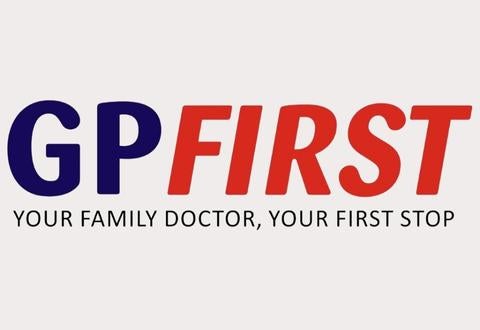Changi General Hospital will NEVER ask you to transfer money over a call. If in doubt, call the 24/7 ScamShield helpline at 1799, or visit the ScamShield website at www.scamshield.gov.sg.
Advanced Practice Nursing (APN)
.png)
An Advanced Practice Nurse (APN) is a Registered Nurse (RN) who has acquired the in-depth knowledge, advanced clinical skill, and complex decision-making capability through intensive training.
To become an APN, the RNs should complete a Master of Nursing course at a National University, as well as one year of sub-speciality internship training.
The expert clinical competency they acquire during their training will empower APNs in taking care of patients with complex medical conditions independently, or in collaboration with physicians and other healthcare professionals.
Some APN-led services in CGH include:
Acute care: Trauma Service
Trauma APNs assist in the resuscitation and stabilisation of patients while handling initial management during emergency trauma activation. They also ensure collaborative decision-making and smooth coordination of care between the multi-disciplinary teams.
Trauma APNs continue to review these patients on a daily basis after the initial activation, while co-managing symptoms with the primary and multi-disciplinary team. The goal is to provide integrative and holistic trauma care for trauma patients and their caregivers.
Acute care: Emergency Department
The Emergency Department receives various trauma and non-trauma emergency cases across all ages.
The APNs work closely with the Emergency Physicians and Emergency Nurses to promptly stabilise these acutely ill patients, before their admission to the wards / ICUs / other hospitals for further management.
The APNs also co-manage patients in the Short Stay Unit (SSU), an observation unit within the A&E for patients requiring an extended duration of stay for up to 23 hours of observation or treatment.
The APNs work closely with the team to review patients’ treatment response, and further optimise medical care before formulating an appropriate discharge plan.
Pain Service
The CGH Pain Service specialises in caring for patients with acute and chronic pain. Nurses play an important role in the detailed assessment of pain conditions as well as the recommendation and initiation of appropriate pain control methods.
Pain Service APNs and pain nurses lead and coordinate the service to ensure the continuity and quality of care provided to patients. They provide patient assessment, suggest treatment modalities, and provide comprehensive educational tips to patients to better control their pain. Telecommunication is also conducted to ensure patients’ safety after outpatient procedures, and to titrate medications if necessary. To better support patients with chronic pain, multi-disciplinary group pain programmes and peer support groups are organised on a regular basis.
The APNs in pain service also run clinics to provide consultation for patients with chronic pain issues. They aim to stabilise the patient’s condition via medication titration and education.
Cardiology
Cardiology APNs work closely with Cardiologists to conduct independent assessments of the patients, providing a timely and holistic management plan for the patient’s condition.
As part of the Cardiology team, APNs provide health teaching and counselling to the patient and family members to ensure they are psychologically prepared for their conditions and procedures. For patients with cardiac devices, APNs helm the role as the point of contact to address patients’ concern.
Cardiology APNs also coordinate care among the multi-disciplinary team to ensure adequate and timely attention and treatment, as well as a smooth care transition for patients.
Diabetes Mellitus
Diabetes Mellitus (DM) APNs work closely with the Department of Endocrinology in managing diabetes in both inpatient and outpatient settings.
The DM APNs have APN led-clinic sessions, which aim to achieve good control of blood sugar levels for patients with DM, and reduce complications of DM through titration of medication and lifestyle counselling.
Intensive Care
CGH Intensive Care Units (ICU) manage a range of critically ill patients. APNs work with the multi-disciplinary team with oversight by an intensivist to craft a holistic care plan to improve patients’ outcomes during and after the ICU stay. They follow up and review post-ICU discharge patients to facilitate continuity of care and safe handover to primary team doctors. As part of the Medical Emergency Team (MET) and Surgical ICU (SICU) Liaison team, ICU APNs also respond to activations and get referrals to care for deteriorating patients in the high dependency (HD) and general wards (GW). APNs have autonomy in decision-making and treatment methods in the patient’s best interest. They also offer emotional support to the patients and their families during this period of critical illness.
Orthopaedics
Together with the Department of Orthopaedics, APNs manage a wide range of orthopaedic conditions such as trauma, arthroplasty, fragility fracture and Ortho-geriatric care.
The APNs in Orthopaedics Service are proficient in Orthopaedic care and management for the setting up of tractions, applying of backslabs and plaster casts alongside providing holistic follow-up care. The APNs are the resource person and point of contact for such cases in CGH.
Vascular Service
The CGH Vascular Service is run by a multi-disciplinary team to meet needs of individuals with complex vascular conditions in both inpatient and outpatient settings. The team brings together the expertise and skills of different professionals to access, plan and manage care jointly.
As members of the Vascular Service team, APNs are actively involved in performing advanced vascular assessment, ordering investigations, providing health education as well as managing conditions in collaboration with the vascular surgeons and rest of the team. The service provides a wide array of interventions from surgery to complex wound care for patients. Vascular APNs also conduct wound talks and workshops to fellow health care providers and the public.
Geriatrics
APNs from the Geriatric Service perform history taking and comprehensive health assessment, including physical, psychological, social and functional assessment of the patients to formulate a comprehensive management plan.
They work collaboratively with a multi-disciplinary team to provide information, education and support to patients and family on a regular basis. They also provide independent and/or collaborative geriatric consultation to other healthcare disciplines.
APNs from the Geriatric Service have sub-specialties that match evolving patient needs. APNs sub-specialising in dementia and delirium care in older adults work very closely with multi-disciplinary team and people with dementia and/or delirium and their family members, to provide good quality of care for patients during their stay in the hospital. They also provide consultation for management of behavioural and psychological symptoms of dementia using the person-centred care approach, as well as provide psychoeducational interventions for caregivers of patients with dementia.
Besides supporting clinical services as an APN, they actively dedicate effort to promote dementia and delirium awareness among the public & healthcare professionals through organising public roadshows, symposiums and structured training programme.
Rehabilitation
Rehabilitation APNs work closely with a multi-disciplinary team to manage patients with complex rehabilitation needs, and keep patients on track towards identified rehabilitation goals. The APNs encourage patients’ adaptation to lifestyle changes, provide education and guidance to patients with complex care needs and their caregivers in preparation for a smooth discharge. They also review the appropriateness of inpatient rehabilitation admission through independent comprehensive health assessments, and provide recommendations for patients with rehabilitation needs in collaboration with Rehabilitation physicians.
Stay Healthy With
© 2025 SingHealth Group. All Rights Reserved.


















